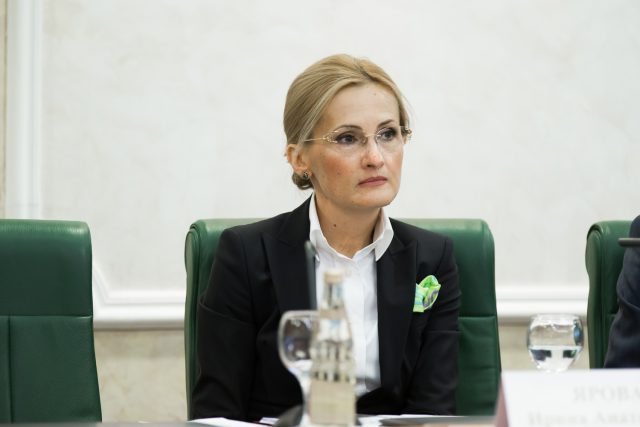
Russia's lower house of parliament, the State Duma, has approved a series of new online surveillance measures as part of a wide-ranging anti-terrorism law. In a tweet, Edward Snowden, currently living in Russia, wrote: "Russia's new Big Brother law is an unworkable, unjustifiable violation of rights that should never be signed."
As well as being able to demand access to encrypted services, the authorities will require Russia's telecom companies to store not just metadata, but the actual content of messages too, for a period of six months. Metadata alone must then be held for a total of three years, according to a summary of the new law on the Meduza site. Authorities will be able to access the stored content and metadata information on demand.
Snowden pointed out the difficulties of implementing the new law: "'Store 6 months of content' is not just dangerous, it's impractical. What is that, ~100PB of storage for even a tiny 50Gbps ISP?" He added: "This bill will take money and liberty from every Russian without improving safety."
Three of Russia's largest telecom companies agreed. According to The Washington Times, the three companies—MTS, Megafon and Vimpelcom—"have each publicly rejected the proposal and said it would require infrastructure that would cost more to build and maintain than the companies could ever make. Yandex, a Russian search engine, said legislation would cause an "excessive limitation of the rights of the companies and users."
The Telegraph quotes Andrei Soldatov, an expert on the Russian security services, as saying that it would be "technically impossible to implement the eavesdropping measures." However, he suggested the Russian authorities were well aware of that: "The real objective doesn't seem to be surveillance, but to intimidate companies into cooperating with the authorities ahead of parliamentary elections in September."
Another measure aims to rein in social media. Meduza's summary explains: "Publishing online incitements to terrorism, or even expressing approval of terrorism on the Internet, will be regarded legally as publishing such comments in the mass media, subjecting individuals to the same strict penalties now imposed on media outlets." The maximum sentence for this is seven years of imprisonment.
Russia already has thoroughgoing surveillance operations in place, including SORM. The European Court of Human Rights ruled that the system of secret interception of mobile telephone communications in Russia violated the European Convention on Human Rights.
The new law has been drafted and promoted by the right-wing politician Irina Anatoleyvna Yarovaya. Wikipedia says of her: "She gained fame as the author and co-author of multiple controversial, very unpopular and very low-quality laws, including the toughening of responsibility for violation of the rules of holding rallies, tightening immigration, criminal libel, and registration requirements for 'foreign agents' for non-profit organisations with foreign funding."
Two of the harshest measures proposed in the original draft of the new law—the ability to revoke convicted criminals' Russian citizenship and their right to travel abroad—were dropped at the last moment.
Although the legislation still needs to be approved by Russia's upper house, the Federation Council, and signed by President Putin, the Meduza article says: "There is no doubt that this will happen."
Listing image by Official photographer of the Federation Council of Russia
reader comments
84